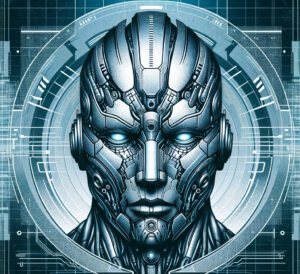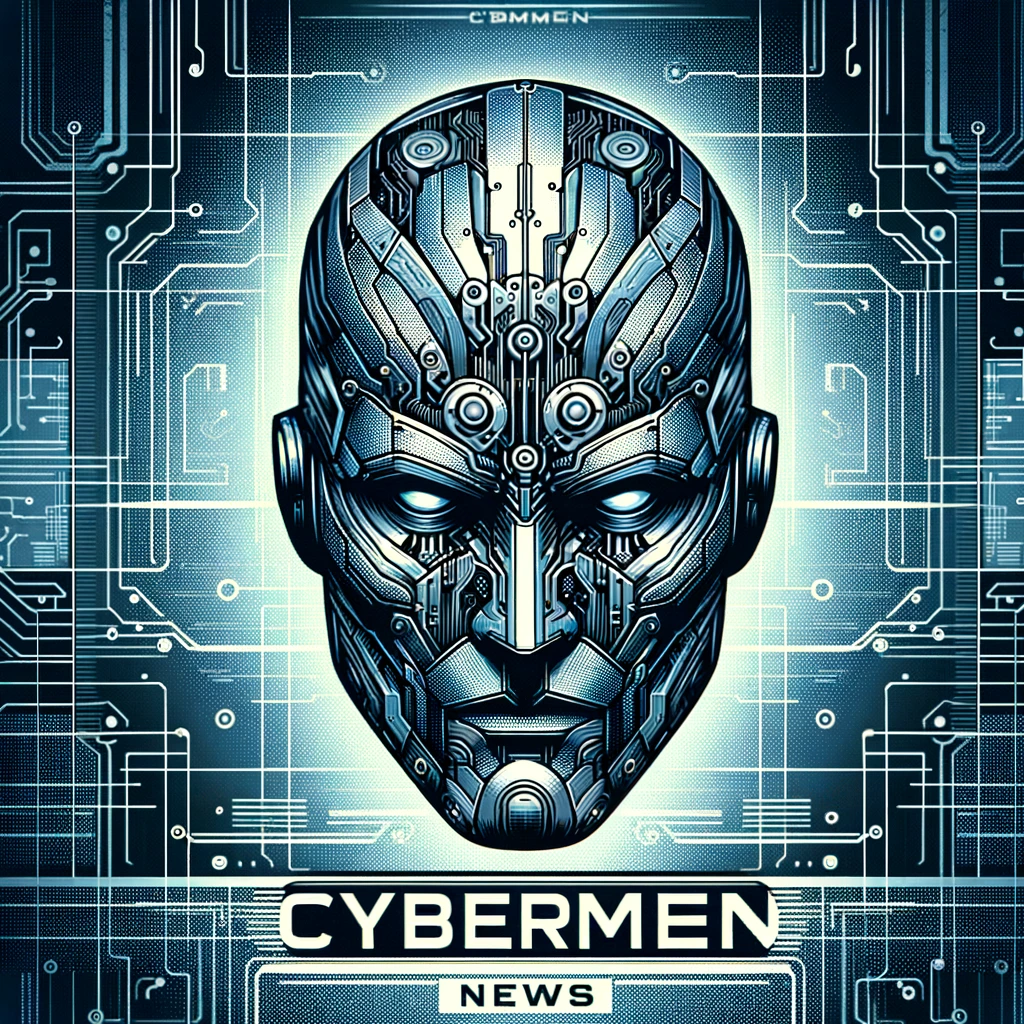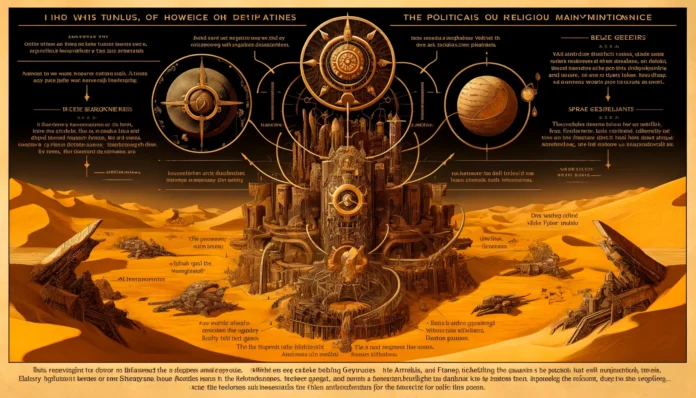Frank Herbert‘s Dune is not merely a tale of interstellar conflict and survival on a desert planet; it is a profound commentary on the intricate ways in which political and religious forces intertwine to manipulate and control societies. Through the epic saga of Paul Atreides and the desert planet Arrakis, Herbert unveils the complexities of power dynamics and the ethical quandaries they present.
The Intricacies of Political Power
In the universe of Dune, political power is a game played by the elite, with the Padishah Emperor and the Great Houses engaging in a perpetual struggle for supremacy. The politics of Arrakis — the sole source of the invaluable spice melange — exemplify the lengths to which these forces will go to secure their dominance. Herbert adeptly demonstrates that political power and religious forces are not merely about faith or governance but is intricately tied to economic interests, with control over Arrakis symbolizing the ultimate prize.
The Bene Gesserit: Masters of Manipulation
The Bene Gesserit sisterhood represents another layer of power in Dune, wielding influence through subtlety and manipulation. By controlling bloodlines and using religious forces (spreading religious prophecies), they manipulate societal beliefs to their advantage. Their long-term strategy — the creation of the Kwisatz Haderach — epitomizes the convergence of politics and religion as tools for control. Through the Bene Gesserit, Herbert explores the ethical implications of wielding such influence, questioning the morality of manipulating entire populations for an overarching agenda.
Religious Forces Fighting for Control
The Fremen’s belief in Paul Atreides as the Lisan al-Gaib highlights the potent influence of religious forces in shaping societal dynamics. Herbert illustrates how religion can be co-opted as a mechanism for political ends, empowering leaders while potentially blinding followers to manipulation. The Fremen’s unwavering faith in Paul as their messianic figure underscores the dual-edged nature of religious belief — a source of strength and unity but also a vehicle for potential exploitation.
The Consequences of Power
Dune delves into the consequences of unchecked power, illustrating how the pursuit of control can lead to societal upheaval, violence, and the erosion of individual freedoms. Paul’s journey from a noble heir to a messianic figure revered by the Fremen encapsulates the perilous path of those who ascend to power through the manipulation of political and religious forces. His struggle with the burden of destiny and the unintended outcomes of his leadership serve as a poignant reminder of the complex relationship between power, ethics, and responsibility.
A Cautionary Tale for the Modern World
Through its exploration of power and manipulation, Dune emerges as a cautionary tale, urging readers to critically examine the political and religious forces that shape our societies. Herbert’s masterpiece encourages a reflection on our susceptibility to manipulation and the importance of maintaining vigilance against those who seek to exploit political and religious beliefs for power.
In today’s world, where the influence of politics and religion continues to be felt across global societies, Dune remains strikingly relevant. It challenges us to question the sources of our beliefs, to seek transparency in our leaders, and to strive for a balance that protects the integrity of individual thought while fostering collective well-being.


